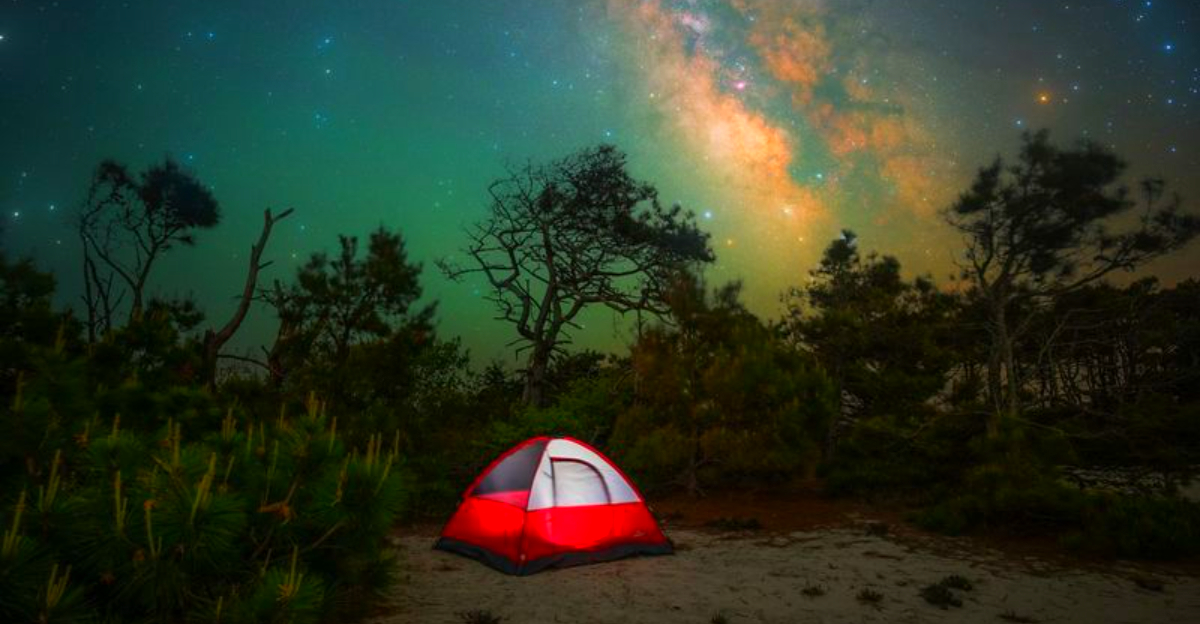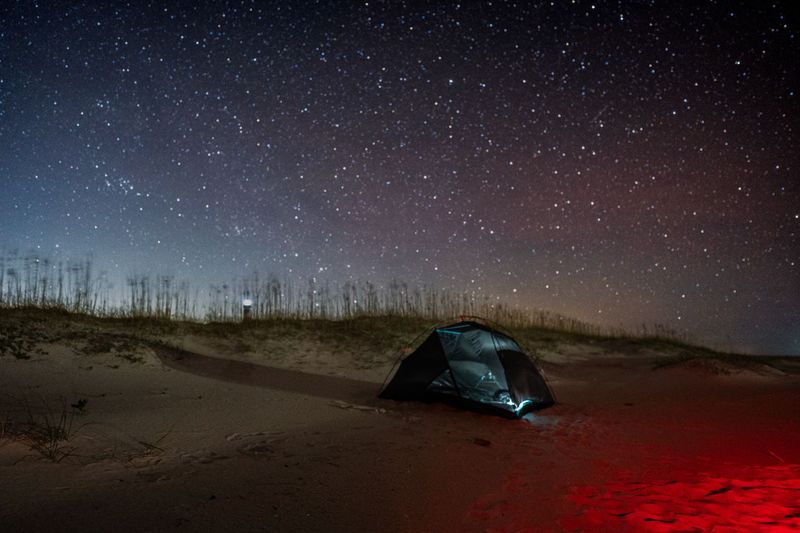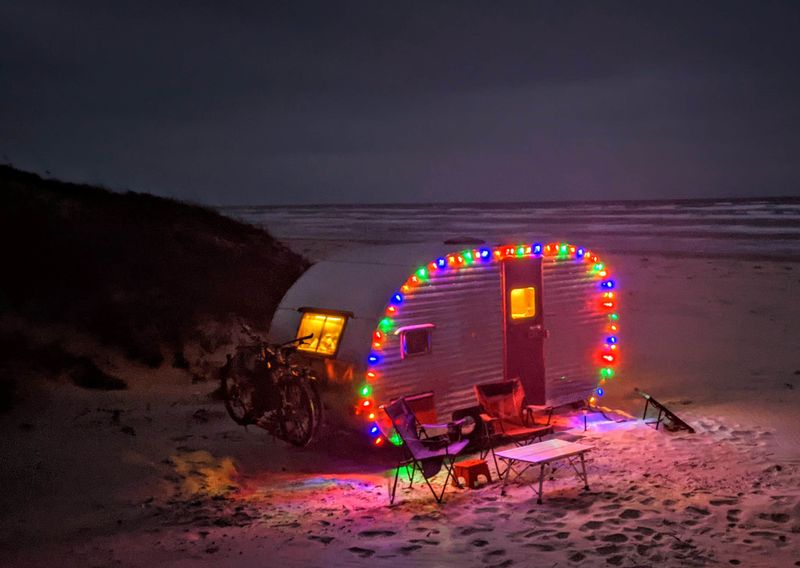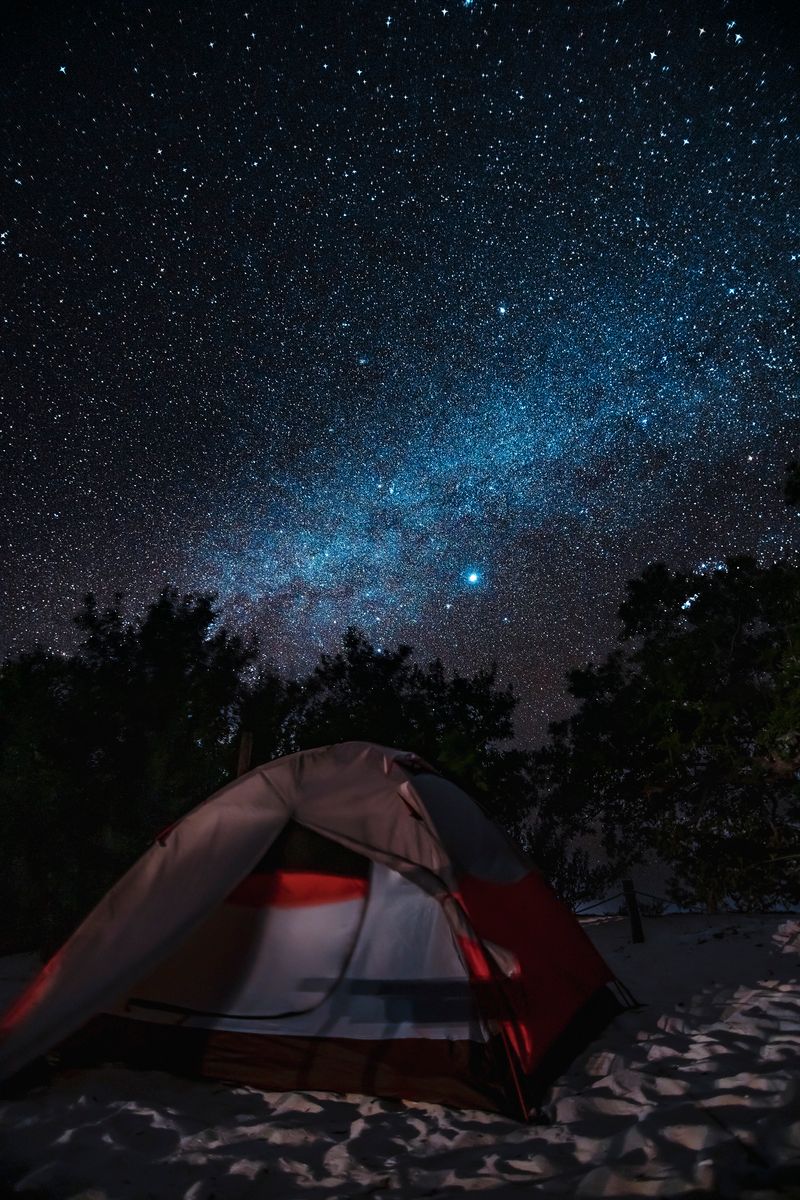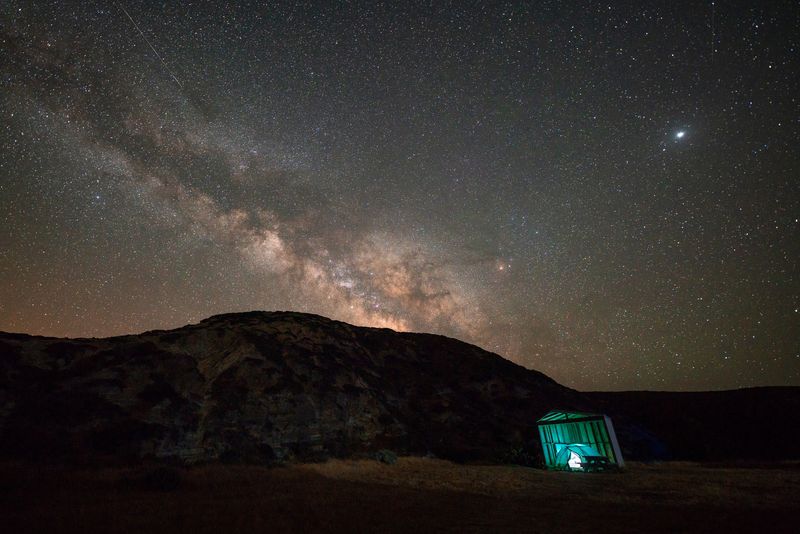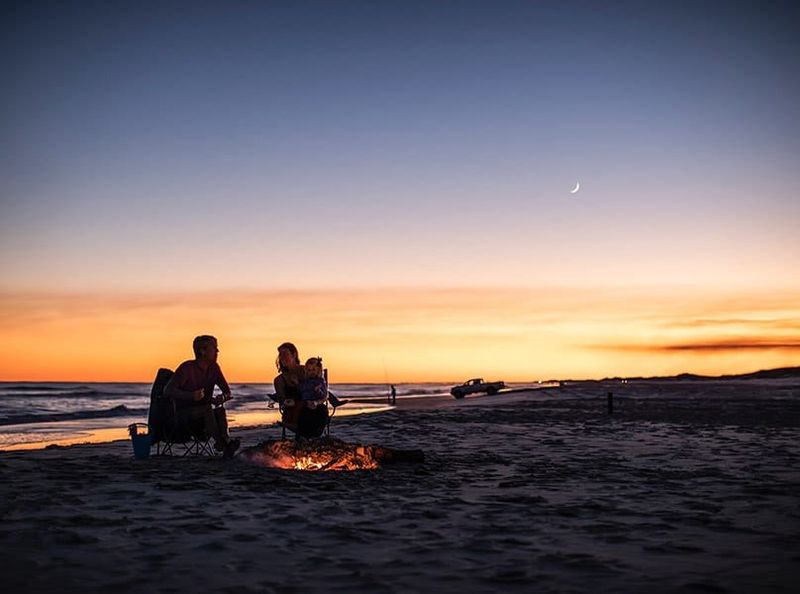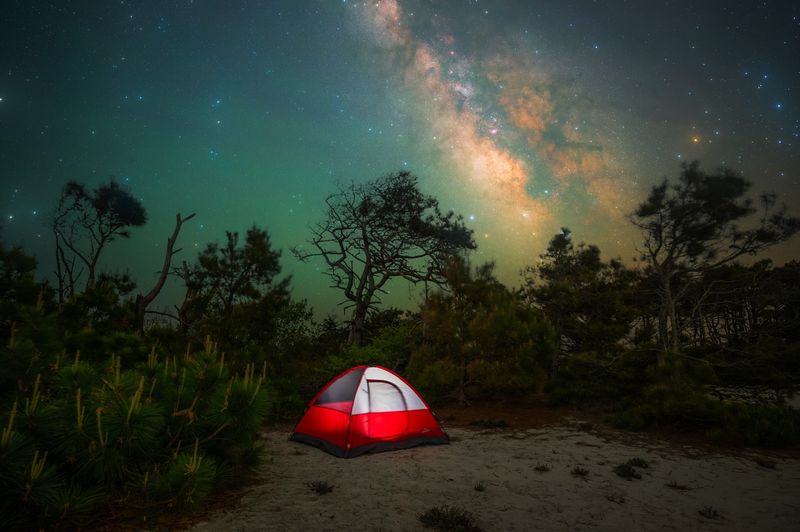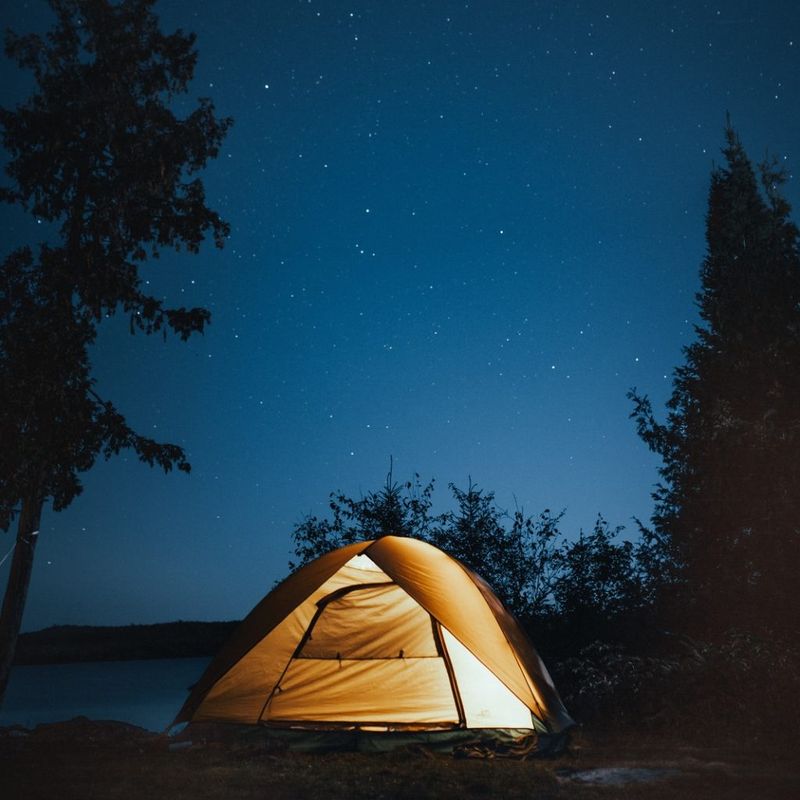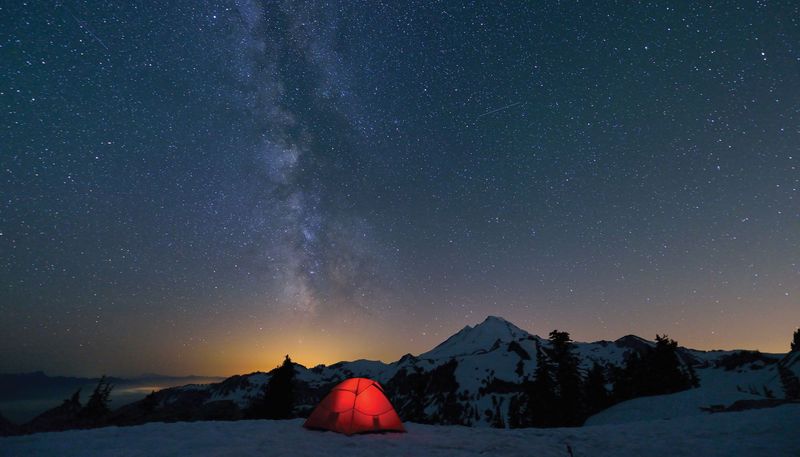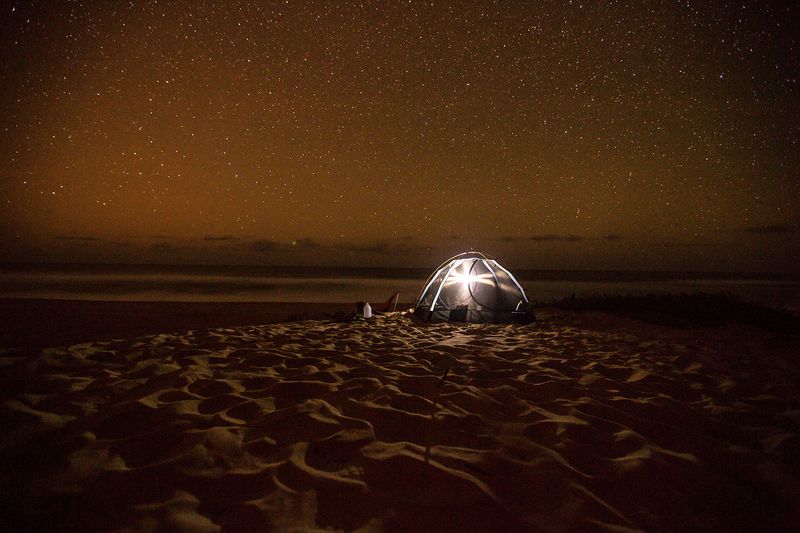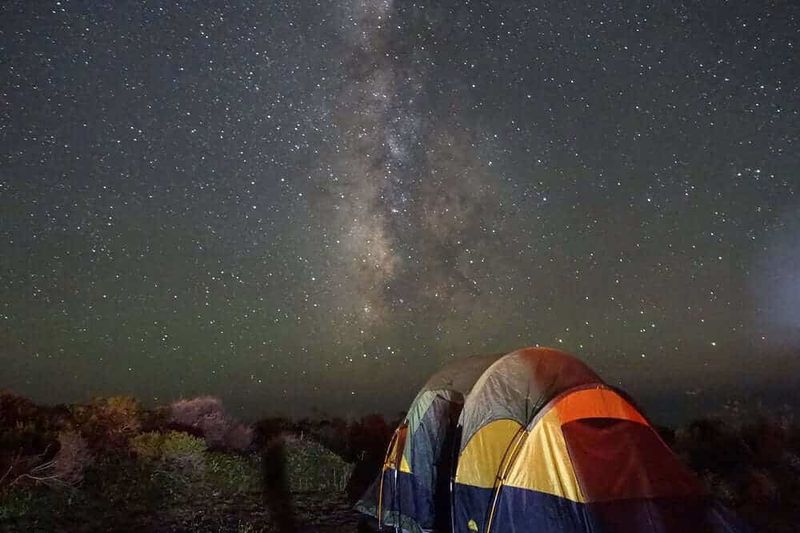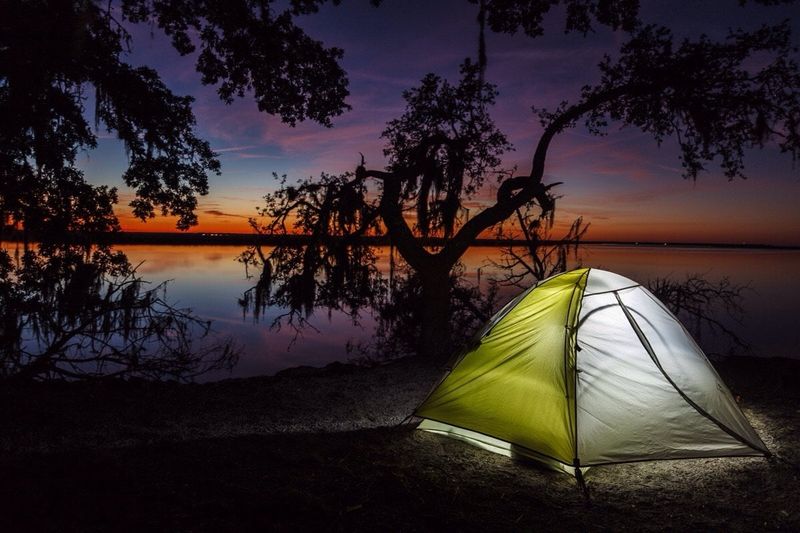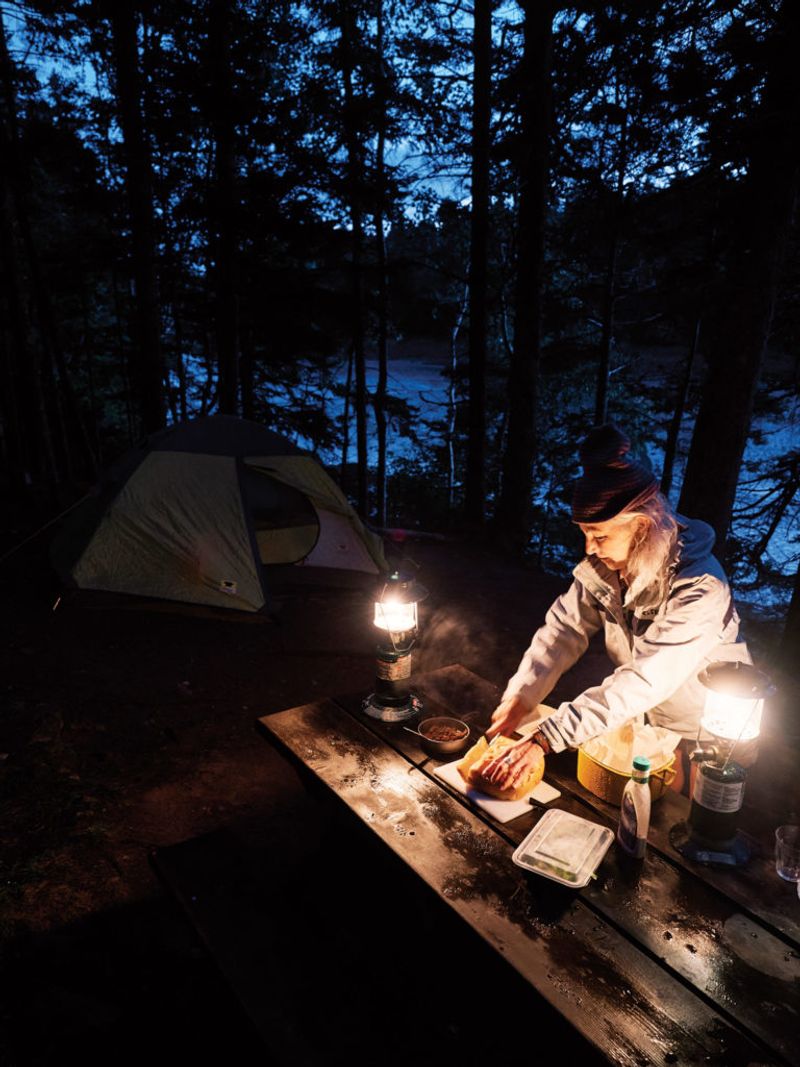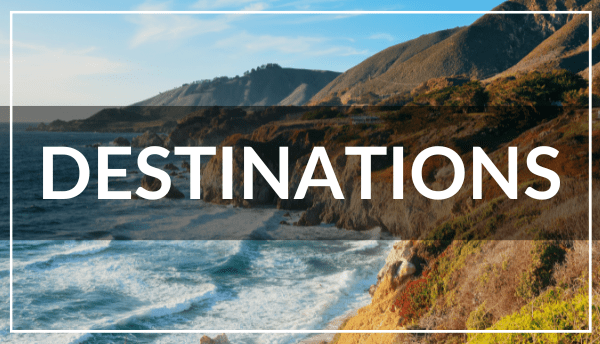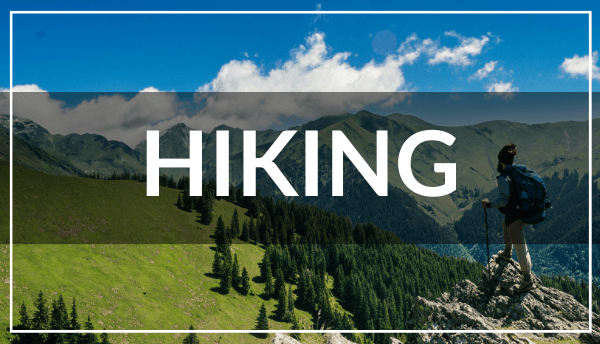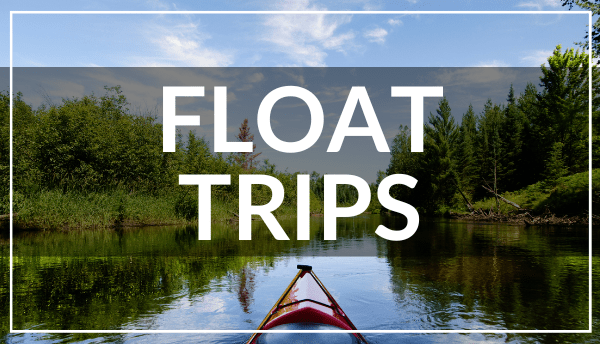Ever dreamed of falling asleep to ocean waves and waking up under a blanket of stars? Beach camping under dark skies combines two of nature’s greatest shows. America’s coastlines offer incredible spots where you can pitch a tent on the sand and gaze upward at constellations, planets, and the sweeping arm of the Milky Way—all while listening to waves crash nearby.
1. Cape Lookout National Seashore, North Carolina
Stargazers flock to this remote barrier island chain for good reason. As an officially designated International Dark Sky Park, Cape Lookout offers pristine night viewing with virtually zero light pollution across its 56 undeveloped miles.
The primitive camping setup is actually a blessing—no facilities means no lights! Set up directly on the sand and watch the Milky Way’s brilliant river of stars reflect on the Atlantic. During meteor showers, you’ll count dozens more shooting stars than you would near any city.
Access requires planning since you’ll need a ferry or private boat, but this isolation guarantees spectacular celestial shows year-round.
2. Padre Island National Seashore, Texas
Stretching along Texas’s Gulf Coast, Padre Island National Seashore transforms after sunset into an astronomer’s paradise. The park embraces its dark sky status with a dedicated Night Sky Observatory near the visitor center.
Drive your vehicle directly onto the beach and set up camp where civilization feels wonderfully distant. The further south you venture, the darker the skies become, revealing cosmic details invisible to city dwellers.
Summer nights bring warm Gulf breezes perfect for midnight swims under starlight. Seasonal sea turtle hatchling releases add another natural wonder to this already magical destination.
3. Dry Tortugas National Park, Florida
Seventy miles west of already-remote Key West lies a stargazer’s ultimate escape. Garden Key’s tiny campground sits beside the imposing brick walls of historic Fort Jefferson, surrounded by nothing but crystal-clear Caribbean waters in every direction.
This extreme isolation creates phenomenal dark sky conditions rare in Florida. Without ambient light for dozens of miles, stars appear to multiply exponentially once night falls.
The camping experience here feels almost primeval—just you, the sea, and the cosmos. Falling stars reflect in the surrounding waters, creating a 360-degree celestial experience that few locations on Earth can match.
4. Channel Islands National Park, California
Magic happens on Santa Cruz Island when the day-trippers depart. As the last ferry pulls away, campers at Scorpion Canyon gain exclusive access to some of Southern California’s darkest skies.
The mainland’s city glow appears as just a distant smudge on the horizon, allowing the Milky Way to dominate overhead. Cool ocean breezes keep the air remarkably clear, enhancing stellar visibility.
Trails leading to elevated viewpoints provide exceptional stargazing platforms. Morning fog often blankets the valleys below, creating the surreal feeling of camping above the clouds after your night under the stars.
5. Ocracoke Campground, North Carolina
Locals call Ocracoke Island the pearl of the Outer Banks, and its night skies certainly qualify as treasures. The ferry-only access naturally limits development and preserves darkness that mainland beaches lost decades ago.
The National Seashore campground sits nestled among dunes just a short walk from miles of undeveloped beach. Astronomical photographers specifically seek out Ocracoke for capturing the Milky Way rising over the Atlantic with zero light interference.
Bring a red flashlight for navigating between your tent and the shoreline after dark. Nighttime beach walks reveal bioluminescent organisms in the surf—nature’s own earthbound stars complementing the celestial show overhead.
6. Assateague Island National Seashore, Maryland
Where else can you watch wild ponies silhouetted against a star-filled sky? Assateague’s ocean-facing beaches offer remarkably dark conditions considering their proximity to major East Coast cities.
The island’s narrow profile means you’re never far from the Atlantic’s horizon, creating panoramic celestial vistas. Summer’s warm nights allow for midnight swims under starlight, while spring and fall bring clearer atmospheric conditions for serious stargazing.
The famous wild horses occasionally wander through campsites, adding surreal magic to your experience. Their soft nickering blends with crashing waves as a natural soundtrack to your night sky observations.
7. Acadia National Park, Maine
Along Acadia’s rugged Atlantic edge, night skies sparkle with extraordinary clarity. The park takes its dark sky status seriously, hosting an annual Night Sky Festival that draws astronomers from across the country.
Seawall’s shoreline on Mount Desert Island’s quieter side provides front-row seating to cosmic displays. The rhythmic lighthouse beams cutting through darkness add a uniquely Maine element to your stargazing experience.
Granite outcroppings warm during daylight hours, offering comfortable perches for nighttime observation long after sunset. On clear nights, the ocean horizon provides a perfect dark backdrop for spotting planets and watching meteors streak across the sky.
8. Olympic National Park, Washington
Kalaloch’s dramatic position where forest meets Pacific creates a stargazer’s paradise on Washington’s coast. Perched on bluffs above driftwood-strewn beaches, campsites offer unobstructed western exposure to the night sky.
The park’s massive wilderness protects against encroaching light pollution. When marine layers retreat, the resulting clarity reveals celestial details that binoculars bring to life spectacularly.
Bald eagles nest nearby, sometimes silhouetted against dawn’s first light after your night of stargazing. The misty Pacific Northwest atmosphere occasionally creates stunning halos around the moon and planets not commonly seen elsewhere.
9. Polihale State Park, Kauaʻi, Hawaiʻi
Hawaiian mythology comes alive under Polihale’s legendary night skies. This remote western beach marks where ancient Hawaiians believed spirits departed for the afterlife—and the astronomical display explains why they chose this spot.
The Milky Way here appears noticeably different than mainland viewing, with southern constellations visible that never rise above northern states. Trade winds keep the air remarkably clear most nights, revealing deep-sky objects rarely seen elsewhere.
The challenging access road keeps crowds minimal. Your reward is having vast stretches of sand to yourself as you gaze upward at some of the darkest skies in the Pacific.
10. Kirk Creek Campground, Big Sur, California
Perched dramatically on ocean bluffs, Kirk Creek offers the rarest combination in California—oceanfront camping with genuinely dark skies. The Santa Lucia Mountains block inland light pollution, creating a celestial window few coastal campsites can match.
Each site provides sweeping Pacific views where sunset colors fade directly into stargazing opportunities. The elevated position creates the illusion of floating between sea and stars.
Marine layer fog occasionally rolls in, but when conditions align, the clarity rivals desert locations. The soundtrack of crashing waves 100 feet below adds an atmospheric dimension to your stargazing that inland sites simply cannot provide.
11. Cumberland Island National Seashore, Georgia
Wild horses roam freely under Cumberland Island’s star-filled skies, creating magical moments for campers at Sea Camp. The National Park Service specifically recommends the island’s beaches and meadows for stargazing due to exceptional darkness.
The ferry-only access means artificial light remains blissfully absent. Warm southern nights allow comfortable viewing year-round, with summer’s Milky Way particularly spectacular over the Atlantic horizon.
Ancient live oaks draped with Spanish moss frame your view of the constellations. The island’s rich history adds another dimension—imagine how these same stars guided ships to this coast centuries before electric lights existed.
12. Cobscook Bay State Park, Maine
Maine’s rugged “bold coast” harbors a stargazing gem at Cobscook Bay. This remote park hosts the annual Maine State Star Party for good reason—its dark skies rival many certified dark sky preserves.
Waterfront campsites let you position your tent for maximum astronomical viewing. The dramatic tidal changes—some of North America’s most extreme—create an ever-changing foreground for your night sky photography.
Bundle up even in summer; the cool coastal air keeps viewing conditions crystal clear. The northern location means summer nights never get fully dark until late, but the extended twilight creates spectacular blue hour opportunities before stars fully emerge.
